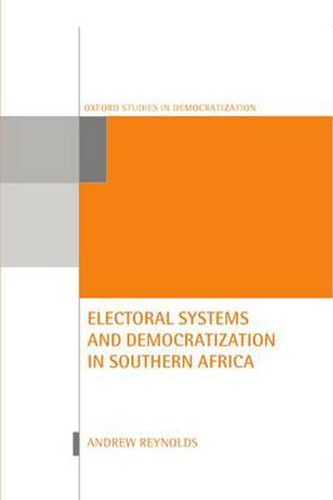Readings Newsletter
Become a Readings Member to make your shopping experience even easier.
Sign in or sign up for free!
You’re not far away from qualifying for FREE standard shipping within Australia
You’ve qualified for FREE standard shipping within Australia
The cart is loading…






The design of electoral systems and executive types is increasingly being recognized the key lever of constitutional engineering to be applied in the interests of political accommodation and stability in ethnically divided societies. In this groundbreaking comparative study of democratic design in Southern Africa, Andrew Reynolds finds that the decisions about how to constitute representative parliaments have wide ranging effects on the type of parties and party system that develops, the nature of executive-legislative relations, and the inclusiveness of both majority and minority interests in the process of governance. While electoral system design is the primary focus of the book, the related constitutional issues of whether to choose a presidential or parliamentary system, and whether to entrench consensual, consociational or majoritarian government are also discussed. Analysing the experiences of Malawi, Namibia, South Africa, Zambia, and Zimbabwe, the author presents a host of revealing conclusions that help shed light on the success or failure of democratic design in other fledgling democracies, in both Africa and beyond.
$9.00 standard shipping within Australia
FREE standard shipping within Australia for orders over $100.00
Express & International shipping calculated at checkout
The design of electoral systems and executive types is increasingly being recognized the key lever of constitutional engineering to be applied in the interests of political accommodation and stability in ethnically divided societies. In this groundbreaking comparative study of democratic design in Southern Africa, Andrew Reynolds finds that the decisions about how to constitute representative parliaments have wide ranging effects on the type of parties and party system that develops, the nature of executive-legislative relations, and the inclusiveness of both majority and minority interests in the process of governance. While electoral system design is the primary focus of the book, the related constitutional issues of whether to choose a presidential or parliamentary system, and whether to entrench consensual, consociational or majoritarian government are also discussed. Analysing the experiences of Malawi, Namibia, South Africa, Zambia, and Zimbabwe, the author presents a host of revealing conclusions that help shed light on the success or failure of democratic design in other fledgling democracies, in both Africa and beyond.